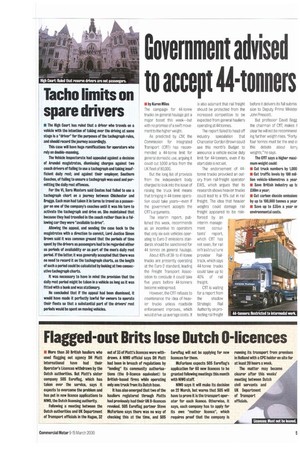Tack, limits on spare drivers
Page 7

If you've noticed an error in this article please click here to report it so we can fix it.
E The High Court has ruled that a driver who travels on a vehicle with the intention of taking over the driving at some stage is a "driver" for the purposes of the tachograph rules, and should record the journey accordingly.
This case will have huge ramifications for operators who rely on double-manning.
The Vehicle Inspectorate had appealed against a decision of Arundel magistrates, dismissing charges against two coach drivers of failing to use a tachograph and taking insufficient daily rest; and against their employer, Southern Coaches, of failing to ensure a tachograph was used and permitting the daily rest offences.
For the WI, Sara Masters said Coates had failed to use a tachograph chart on a journey between Chichester and Brugge. Each man had taken it in turns to travel as a passenger on one of the company's coaches until it was his turn to activate the tachograph and drive on. She maintained that because they had travelled in the coach rather than in a following car they were "available to drive", Allowing the appeal, and sending the case back to the magistrates with a direction to convict, Lord Justice Simon Brown said it was common ground that the periods of time spent by the drivers as passengers had to be regarded either as periods of availability or as part of the men's daily rest period. If the latter, it was generally accepted that there was no need to record it on the tachograph charts, as the length of such a period could be calculated by looking at two consecutive tachograph charts.
It was necessary to have in mind the provision that the daily rest period might be taken in a vehicle as long as it was fitted with a bunk and was stationary.
He concluded that if the appeal had been dismissed. tt would have made it perfectly lawful for owners to operate their fleets so that a substantial part of the drivers' rest periods would be spent on moving vehicles.








































































































